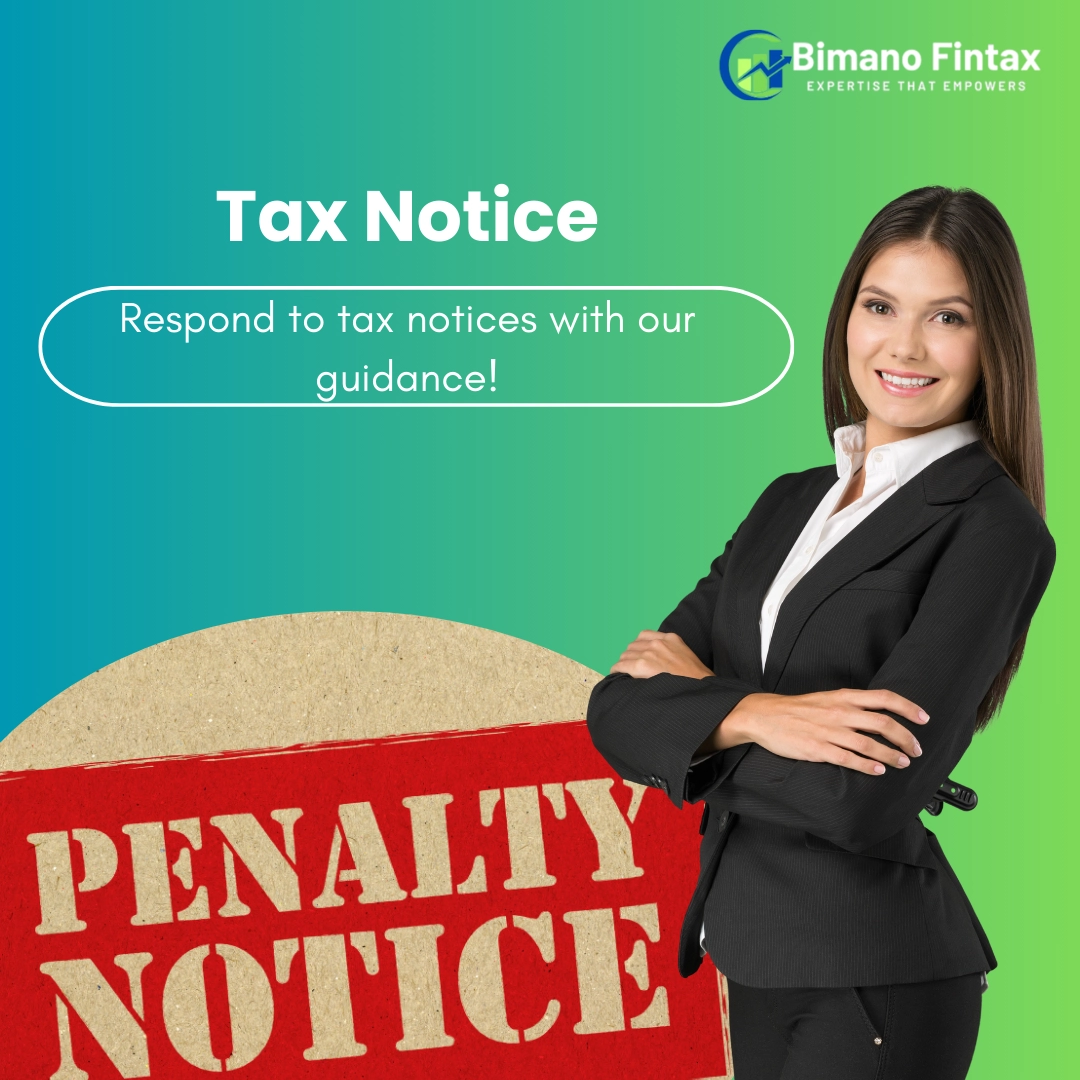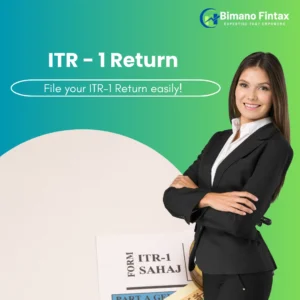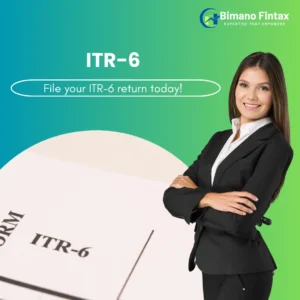Description
Introduction to Business Tax Notices
Business tax notices are formal communications issued by the income tax department to inform businesses of various tax-related matters. These notices can serve multiple purposes, ranging from requesting additional information to highlighting discrepancies in the filed tax returns. Understanding why these notices are issued and how to respond appropriately is crucial for maintaining compliance and avoiding potential penalties.
One of the most common reasons for receiving a business tax notice is the non-filing of income tax returns. The income tax department monitors the filing status of businesses and individuals, and if a business fails to submit its returns by the stipulated deadline, it may receive a notice requesting immediate action. Additionally, if a business files a defective or incomplete return, the department may issue a notice seeking clarification or correction of the submitted information.
Another reason for receiving a tax notice is the need for additional documentation. Sometimes, the income tax department requires supplementary documents to verify the details provided in the tax returns. This could include financial statements, transaction records, or any other relevant paperwork that can substantiate the claims made in the returns. Ensuring that these documents are accurate and readily available can expedite the resolution process.
Moreover, discrepancies or mismatches in the reported income and actual income can trigger a tax notice. For instance, if the income declared in the tax returns does not align with the income reported in the financial statements, the department may seek an explanation for the inconsistency. Addressing such issues promptly and accurately can help in mitigating potential disputes and penalties.
In summary, business tax notices play a pivotal role in the tax compliance framework. They ensure that businesses adhere to tax regulations and provide necessary information when required. Promptly addressing these notices can prevent further complications and foster a smooth relationship with the income tax department. Understanding the common reasons behind these notices can help businesses prepare better and respond effectively.
Common Reasons for Receiving a Tax Notice
Businesses may receive tax notices for a multitude of reasons, each of which can pose significant challenges if not addressed promptly and accurately. One of the most common triggers is the late or non-filing of tax returns. When a business fails to submit its returns by the due date, it often leads to automated reminders or penalties from tax authorities. For example, a small enterprise missing the deadline for quarterly VAT returns could be flagged for immediate review and penalty assessment.
Discrepancies in filed returns are another frequent cause for tax notices. If the reported figures do not match the data available to the tax authorities, a notice is typically issued. This could occur if a business underreports its income or overstates its expenses. For instance, a company claiming higher deductions for business expenses without corresponding receipts might be asked to clarify these discrepancies.
Similarly, a mismatch in reported income and expenses can attract scrutiny. Tax authorities compare the income declared by the business with other financial data sources, such as bank statements and third-party reports. If they find inconsistencies, they will send a notice for further clarification. An example would be a retail business showing significantly lower sales figures compared to credit card transaction records, raising a red flag for potential underreporting.
Incorrect information provided on tax returns is another reason for receiving a notice. Simple errors like incorrect tax identification numbers, wrong bank account details, or typographical mistakes can trigger a review. For example, if a business enters an incorrect Employer Identification Number (EIN), it could result in a mismatch with the tax authorities’ records, prompting a notice for correction.
Lastly, requests for additional documentation are routine, especially during audits or detailed reviews. Tax authorities may ask for invoices, receipts, contracts, or other supporting documents to substantiate the claims made in the tax returns. For example, a growing business might be asked to provide detailed payroll records to verify employment tax credits claimed.
Ignoring a tax notice can have significant and far-reaching consequences for any business. Tax notices are official communications from tax authorities indicating discrepancies, outstanding liabilities, or required documentation. Neglecting to address these notices can result in a cascade of legal and financial ramifications that can jeopardize the operational stability of the business.
One of the primary risks associated with ignoring a tax notice is the imposition of fines and penalties. Tax authorities typically have a structured penalty system designed to enforce compliance. These penalties can escalate quickly, turning a manageable issue into a substantial financial burden. For instance, late filing penalties, interest on outstanding taxes, and additional fines for non-compliance can accumulate, significantly increasing the total amount owed.
Additionally, failure to respond to a tax notice may trigger an audit or investigation by tax authorities. Audits are thorough examinations of financial records to verify the accuracy of tax filings. They can be time-consuming and resource-intensive, diverting attention from core business operations. An audit may also uncover other discrepancies or errors, leading to further penalties and legal complications.
Legal implications are another serious consideration. Persistent non-compliance can result in more severe actions, such as liens on business assets, levies on bank accounts, and even criminal charges in extreme cases. These actions can severely disrupt business activities, damage the company’s reputation, and erode stakeholder trust.
Therefore, it is crucial for businesses to take tax notices seriously and respond promptly. Ensuring regulatory compliance not only avoids the immediate financial penalties but also fosters a proactive approach to tax management. Leveraging professional services like Bimano FinTax can help businesses navigate tax compliance efficiently, mitigating risks and ensuring all tax obligations are met accurately and timely.
Steps to Take Upon Receiving a Tax Notice
Receiving a tax notice can be an unsettling experience for any business. However, taking prompt and measured steps can help navigate the situation efficiently. The first critical step is to review the notice carefully. Ensure that every detail, including the tax period in question, the nature of the issue, and any specific instructions, is thoroughly understood. Understanding the specific requirements outlined in the notice is paramount to formulating an appropriate response.
Once you have a clear understanding, the next step is to gather all necessary documents related to the notice. This might include financial statements, tax returns, receipts, and any correspondence with tax authorities. Organizing these documents meticulously can significantly streamline the process of addressing the notice. Ensuring that all relevant information is accessible and accurate will facilitate a more efficient response to the tax authorities and potentially minimize further inquiries.
Time is of the essence when dealing with tax notices. It is imperative to respond within the stipulated timeframe mentioned in the notice. A delayed response can exacerbate the issue, leading to penalties or additional scrutiny. Therefore, preparing and submitting a timely response should be a top priority. This includes completing any required forms, providing requested documentation, and clearly articulating your position or any corrections that need to be made.
Accuracy in your response is equally important. Any errors or omissions can lead to further complications. Hence, it is advisable to double-check all information before submission. Seeking professional assistance from a tax advisor or a specialized service like Bimano FinTax can also be beneficial. These professionals can offer insights and ensure that your response is both accurate and comprehensive, thereby mitigating any negative consequences effectively.
In summary, reviewing the notice meticulously, gathering necessary documents, responding within the designated timeframe, and ensuring accuracy in your response are crucial steps to take upon receiving a tax notice. By adhering to these steps, businesses can navigate tax notices more efficiently and maintain compliance with tax regulations.
How Bimano FinTax Can Help
Bimano FinTax is a specialized firm dedicated to assisting businesses in navigating the often complex landscape of tax notices. With a team of seasoned experts in tax compliance and regulatory matters, Bimano FinTax offers comprehensive services designed to simplify the compliance process and reduce the stress associated with handling tax notices.
The firm’s approach begins with a thorough analysis of the tax notice received by the business. This involves a meticulous review of the notice to understand its implications fully and to identify any discrepancies or errors. Bimano FinTax’s team then prepares all necessary documentation to respond to the notice, ensuring that all responses are accurate and comprehensive.
One of the standout features of Bimano FinTax’s service is their proactive communication with the tax department. The team not only prepares the required documents but also liaises directly with tax officials on behalf of their clients. This direct communication helps to expedite the resolution process and ensures that any issues or questions are addressed promptly and efficiently.
Clients of Bimano FinTax have often shared their positive experiences, highlighting the firm’s effectiveness in resolving tax issues. For instance, a mid-sized manufacturing company faced a significant tax penalty due to a filing error. With Bimano FinTax’s intervention, the penalty was reduced substantially, and the company managed to avoid further complications. Another client, a tech startup, praised the team’s ability to demystify complex tax jargon, making the entire process more understandable and less daunting.
By offering expert analysis, detailed document preparation, and proactive communication, Bimano FinTax provides a stress-free solution for businesses dealing with tax notices. Their proven track record and client testimonials underscore the firm’s capability to handle tax compliance efficiently, allowing businesses to focus on their core operations without the added burden of tax-related issues.
Document Preparation and Submission
Responding to a tax notice requires meticulous document preparation and submission, a process that can be both time-consuming and stressful. Ensuring that all paperwork is accurate, well-organized, and meets the specific requirements outlined in the notice is crucial. Failure to do so can result in further complications, including potential fines and additional scrutiny from tax authorities.
To begin, businesses must gather all relevant documents that pertain to the specific queries raised in the tax notice. This often includes income statements, receipts, expense records, and any other financial documentation that supports the information previously submitted in tax returns. It’s essential to cross-check each document for accuracy and completeness before submission.
Organizing these documents systematically is equally important. Creating a checklist based on the notice’s requirements can ensure that no document is overlooked. Segregating documents into clearly labeled folders—both physical and digital—can facilitate easy access and review. Additionally, including a cover letter that outlines the contents and provides a brief explanation of each document can help streamline the review process for tax authorities.
Bimano FinTax plays a pivotal role in aiding businesses through this critical phase. The platform offers tools designed to assist in the accurate preparation and organization of documents. By leveraging its advanced features, businesses can ensure that all necessary documentation is gathered, verified for accuracy, and formatted as per the tax authority’s guidelines. Bimano FinTax also provides templates and checklists tailored to various types of tax notices, ensuring that nothing is missed during the preparation process.
Submission of documents is simplified through Bimano FinTax’s secure portal, which allows businesses to upload and send their responses directly to tax authorities. This secure transmission ensures that sensitive financial information is protected, and the platform’s tracking feature gives businesses the peace of mind of knowing that their documents have been received and are being processed.
In essence, Bimano FinTax offers a comprehensive solution for document preparation and submission, reducing the burden on businesses and ensuring compliance with tax notice requirements. By utilizing these tools, businesses can navigate the complexities of tax notices with greater confidence and efficiency.
Follow-Up and Resolution
Once the initial response to a tax notice has been submitted, the follow-up process is crucial to ensure that any further queries or issues raised by the tax department are addressed promptly. Effective follow-up not only demonstrates compliance but also helps in quickly resolving outstanding matters that could otherwise escalate into more significant problems. The steps involved in follow-up typically include monitoring the communication channels for any updates from the tax authority, responding to additional information requests, and ensuring all documentation is accurate and complete.
To manage these steps efficiently, it is essential to have a structured approach. This often involves setting up a dedicated timeline for follow-ups, maintaining a log of all communications, and regularly reviewing the status of the case. Ensuring that all responses are timely and comprehensive can significantly reduce the risk of penalties or further complications.
Bimano FinTax excels in this area by offering a comprehensive follow-up and resolution service. The platform is designed to track ongoing communications with tax authorities, ensuring that no query goes unanswered. It automates reminders for important deadlines and provides a centralized repository for all related documents, making it easy to retrieve and review information when needed. Bimano FinTax’s team of experts is skilled in interpreting tax regulations and crafting appropriate responses, thereby enhancing the likelihood of a favorable resolution.
Furthermore, Bimano FinTax ensures compliance with all regulatory standards by continuously updating its processes to reflect the latest changes in tax laws. This proactive approach reduces the chances of non-compliance and ensures that businesses can focus on their core operations without the constant worry of unresolved tax matters. In essence, Bimano FinTax not only simplifies the follow-up process but also provides peace of mind by ensuring that all tax-related issues are handled with the utmost efficiency and professionalism.
Preventing Future Tax Notice
Preventing future tax notices is pivotal for the seamless operation of any business. The first step in this endeavor is to maintain accurate and up-to-date financial records. Regular bookkeeping ensures that all transactions are properly documented, minimizing discrepancies that could trigger tax notices. Utilizing advanced accounting software or partnering with a reputable service like Bimano FinTax can streamline this process, offering automated solutions that reduce human error.
Timely filing of tax returns is another critical aspect of compliance. Businesses must adhere to tax filing deadlines to avoid penalties and interest charges. A proactive approach, such as setting reminders and using electronic filing systems provided by services like Bimano FinTax, can help ensure that returns are submitted on time. Moreover, engaging in regular internal audits can detect and rectify potential issues before they escalate. Periodic reviews of financial statements and tax filings can identify inconsistencies and prompt corrective actions.
Staying updated with the ever-evolving tax laws and regulations is also essential. Tax codes can change frequently, and businesses must remain informed to comply effectively. This is where Bimano FinTax proves invaluable, offering continuous support and guidance. Their team of experts monitors legislative updates and provides timely advice, ensuring that businesses are always aligned with current tax requirements. Additionally, they offer training and resources to help business owners and employees understand the nuances of tax compliance.
By adopting these strategies and leveraging the expertise of Bimano FinTax, businesses can significantly reduce the risk of receiving tax notices. Accurate record-keeping, timely filings, regular audits, and staying informed about tax laws collectively create a robust framework for compliance. Bimano FinTax’s ongoing support ensures that businesses can navigate the complexities of tax regulations with confidence, fostering a stable and compliant financial environment.






Reviews
There are no reviews yet.